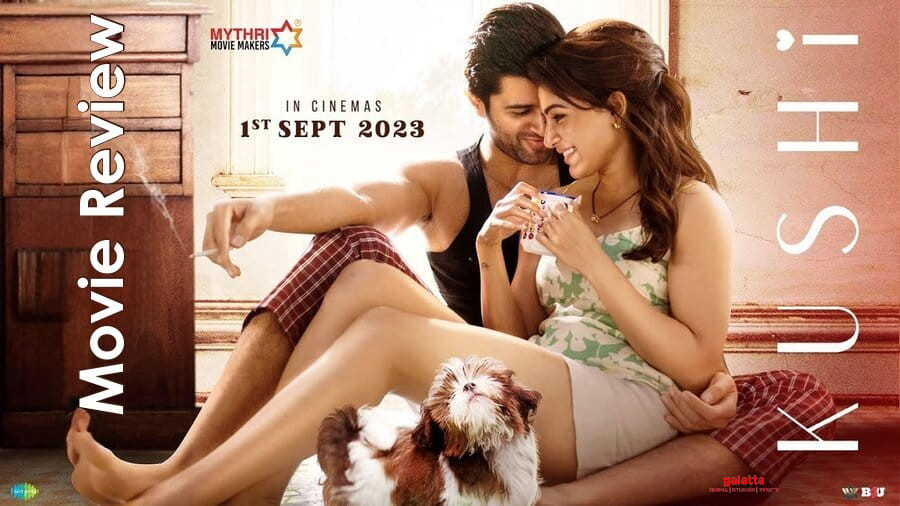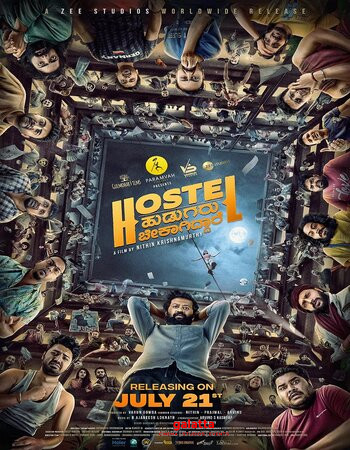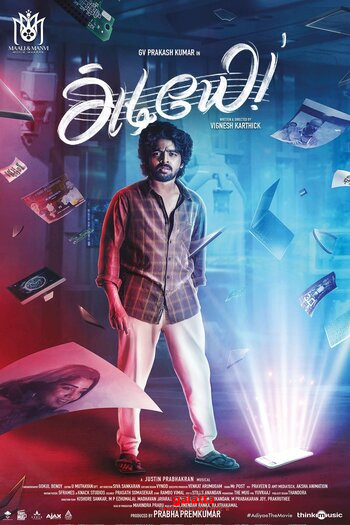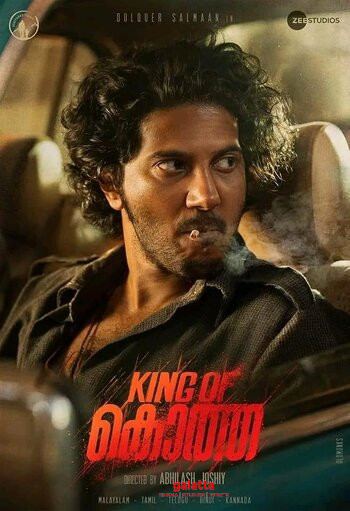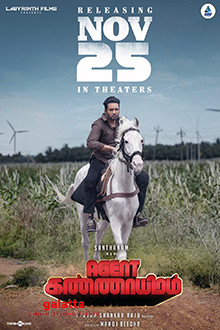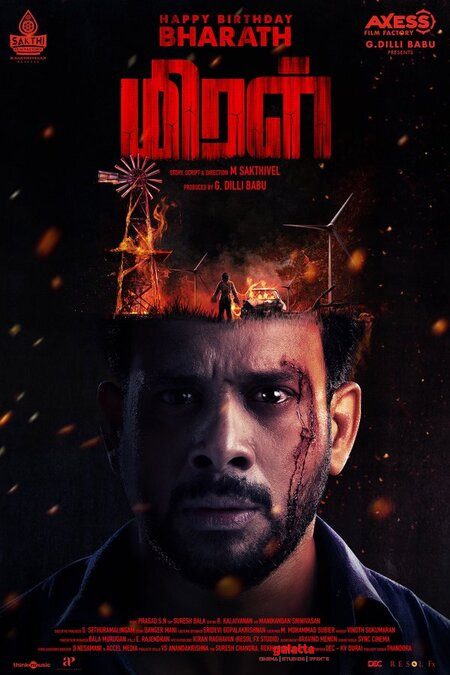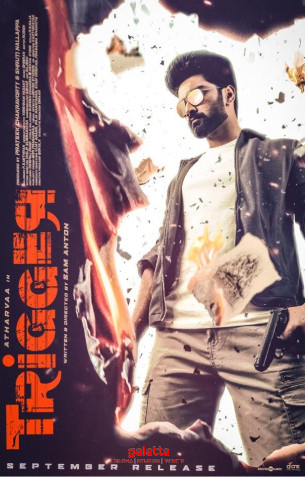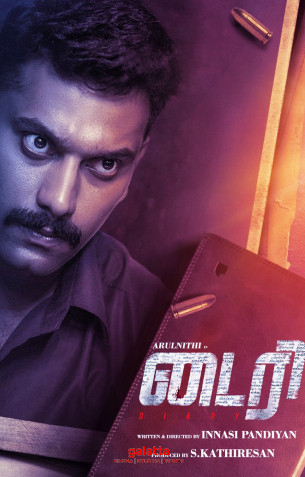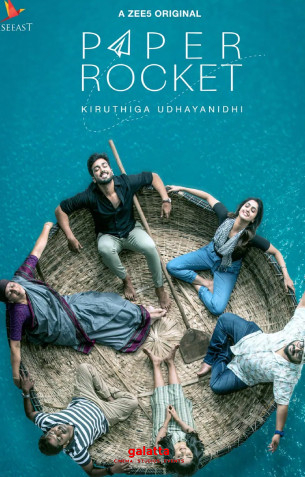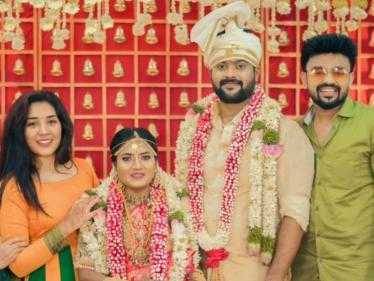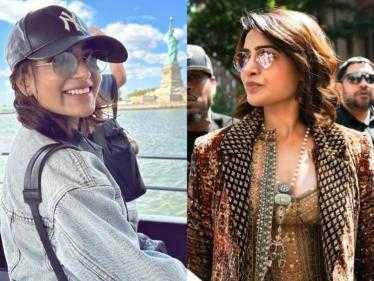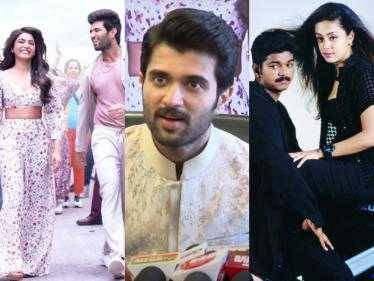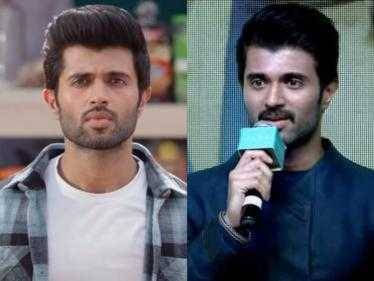Kushi Movie Cast & Crew
Vijay Deverakonda gets to turn on every bit of his star wattage in Shiva Nirvana's Kushi. I personally prefer to watch this actor express angst: few young performers are better at locating so precisely the scabs and scars and ripped-open wounds in one's soul. But here, he is in his Geetha Govindam mode. In that review, I wrote: "Vijay Deverakonda is canny enough to realise that the new-fangled films that got him noticed may be better cinema, but to become a huge box-office draw, you need to be a popcorn entertainer who's a bit of everything to everyone." You could say the same about Kushi. It is a safe movie. It is a family movie. It is a movie that makes a joke about Arjun Reddy and says: "This is not that movie. This is a safe movie. This is a family movie." And Vijay handles it all like a pro, like a supermodel who knows exactly where to look and how to turn for Murali G's camera to record him at his starriest.
His character is named Viplav. He works for a government company (BSNL) the way Shah Rukh Khan's character worked for AIR in Dil Se. When the first track from Hesham Abdul Wahab's lovely album ('Na Roja nuvve') , was released, many people noted that the lyrics were filled with the names of Mani Ratnam's movies. It was no accident. The main story of Kushi is about science vs. superstition, but a parallel narrative is about the many Mani Ratnam-esque storylines in here. Viplav falls for the burqa-clad Aaradhya (Samantha Ruth Prabhu), in Kashmir, and when they decide to get married, their families find there's too much incompatibility, too much friction. Aaradhya's father throws her out. Viplav/Aaradhya take up a place of their own, and negotiate married life with all its ups and downs with a guest appearance-making older couple (Rohini / Jayaram)...
This is an inelegant screenplay, which throws plot points at you instead of easing you into them. For instance, how do we know that Viplav's father (Sachin Khedekar) is a science-loving atheist? Because, in the very first scene, he's called to the podium on World Science Day and he rants against superstition. Now that that checkbox is cleared, how do we know that Aaradhya's father (Murali Sharma) is a scripture-quoting theist? Because in a train, in Kashmir, the man right behind Aaradhya plays… scripture being quoted by her father! If Viplav's devout mother (Saranya Ponvannan) is so afraid of incurring his father's wrath, then why would she conduct a ritual in the living room for all to see? When Viplav lands in Kashmir for his posting, he seems surprised to see an explosion – but afterwards, nothing occurs that marks this state as particularly troubled, nor is Viplav wary about moving around. So why have this scene suggesting a war-torn state? So on and so forth.
Kashmir is simply the place Viplav meets Aaradhya, whose reason for wearing that burqa may make some eyes roll. What Kushi needed to do in the first half is establish their romance firmly. But his is a case of love at first sight (which, again, might be a Mani Ratnam nod), and we waste a lot of time over a bizarrely over-the-top subplot about her missing brother. Neither Viplav nor Aaradhya behaves like a real person. They are exaggerated caricatures doing things we are meant to find "sweet" and "cute" and "romantic". I admit I giggled at the sight of Vennela Kishore taking a shit in the snow while listening to Lag jaa gale. And a joke involving apples is mildly amusing. But all this does nothing for the love story we are meant to be rooting for, and there is literally no basis for why Aaradhya should fall for Viplav.
But at the end of this tiresome "brother" subplot (it goes on and on in this 2:45-hour movie) Samantha sells her reason beautifully. Aaradhya believes in destiny and God, and she feels Viplav is the man for her. It can't be explained rationally, but Samantha is so good (and so old-world gorgeous) that she makes you feel what she is feeling. And the early parts of the second half are where you finally feel the chemistry between the two stars, the two actors. Over a song that breezes through a year of screen time, we see Viplav and Aaradhya do small things (instead of the big, exaggerated things earlier) that make them believable as a couple. Knowing his atheism, she hesitates to buy a small statue of Ganesha, but then, he surprises her with… a small statue of Ganesha. This bit in the song tells us everything about living with another person: that you can do your own thing, and yet respect your partner's beliefs.
Had this flavour continued, we might have had an excellent second half that touched on this core (and universal) concept of being true to yourself and yet… adjusting, compromising… to an extent that doesn't break that true self of yours. Instead, we get into exaggerations again to escalate the conflict between this couple. Out of nowhere, Viplav turns into this man who says things like "Women should be put in their place." And a scene at a fertility centre is treated as broad comedy, which destroys the emotion behind going to that fertility centre in the first place. I could overlook the two unnecessarily overblown action sequences: art and the box office need as much adjustment and compromise as a couple does. But what to do with a scene where Aaradhya's foreign client says he would have married her had she been single – just so that Viplav can overhear this and get more conflicted?
I liked the ending. I liked Viplav's small confrontation with his father. When the older man does something that goes against his beliefs, you realise the power of good melodrama. And when the science vs. superstition dilemma is resolved apparently by God or Nature (depending on which side of the divide you fall on), it's the perfect ending. Because not all debates have conclusive answers. This last stretch captures that balance that Alaipaayuthey did, between heightening something for cinematic effect and yet keeping things real. But it's when some things are done so well that the rest of it rankles. If all you want is pretty people in pretty surroundings and a pretty soundtrack, I suppose Kushi fits the bill. But I'd say the film is a missed opportunity. The sort of writing where Viplav wakes up and finds Aaradhya missing (and the resolution to this) – it's shock value for the sake of shock value. It tells us not to take this couple seriously. And when that doesn't happen, where's the movie?
